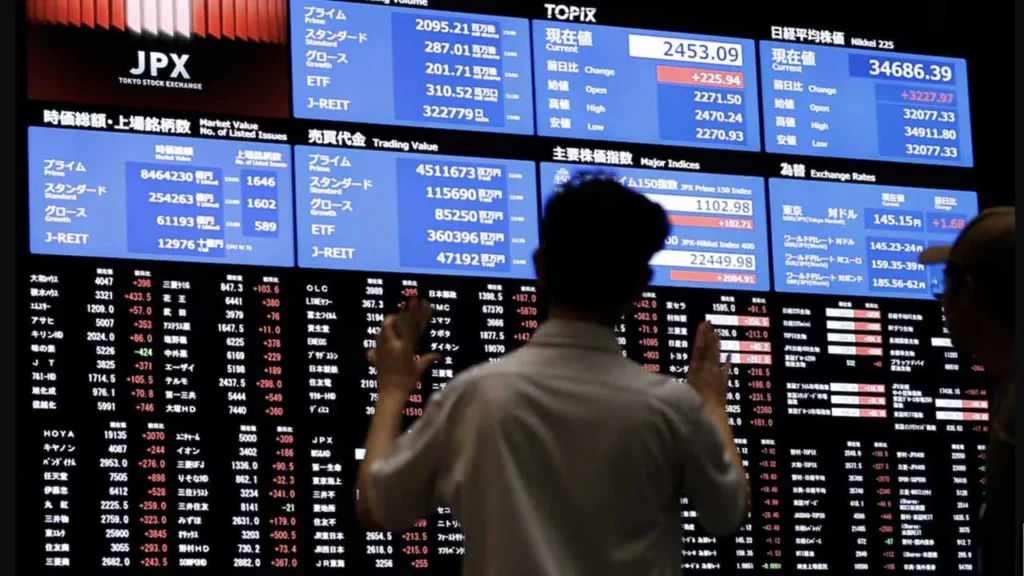- Web
- Feb 20, 2026
Gold, yen rise while Asia stocks fall amid Middle East tensions
-

- Web Desk
- Jun 19, 2025

SINGAPORE: Asian equities slipped on Thursday, while demand for traditional safe-haven assets like gold and the Japanese yen climbed, as markets remained unsettled by the possibility of direct US military involvement in the escalating Israel-Iran conflict.
President Donald Trump added to market uncertainty with ambiguous comments outside the White House: “I may do it. I may not do it,” he said when asked if the US would support Israel’s reported strikes on Iranian nuclear facilities.
The Wall Street Journal reported that Trump has privately approved military plans but is delaying a final go-ahead in hopes Iran might roll back its nuclear programme.
Regional stock benchmarks reacted negatively to the uncertainty. Japan’s Nikkei 225 fell 0.8 per cent, weighed further by a stronger yen, which dents exporter earnings. Taiwan’s Taiex dropped 0.9 per cent, while Hong Kong’s Hang Seng Index shed 0.8 per cent.
US equity futures also pointed lower, with S&P 500 contracts down 0.4 per cent, although US markets remained shut for a national holiday.
Gold, often viewed as a hedge during periods of geopolitical stress, rose 0.3 per cent to $3,378 per ounce. The yen gained 0.2 per cent to 144.92 against the dollar. The greenback also firmed slightly against the euro and pound, up 0.1 per cent and 0.2 per cent respectively, as investors sought stability.
“Markets remain jittery,” said Kyle Rodda, senior analyst at Capital.com. “There’s ongoing speculation—perhaps intentionally stoked by the Trump administration—that the US may enter the conflict. That would mark a significant escalation and could trigger Iranian retaliation, with broader implications for the region, energy markets, and the global economy.”
Oil prices held near recent highs, with Brent crude easing slightly to $76.32 per barrel, but still close to the four-and-a-half-month peak of $78.50 seen last week.
Investors also kept an eye on central bank meetings in Europe. The Bank of England is expected to leave interest rates unchanged, while the Swiss National Bank is widely forecast to deliver a 25-basis-point rate cut. The Swiss franc edged 0.1 per cent lower against the dollar ahead of the decision.
Meanwhile, the US Federal Reserve left its policy rate unchanged overnight and maintained its projection for two rate cuts later this year. Still, Chair Jerome Powell struck a cautious tone, citing the inflationary impact of Trump’s aggressive tariff policy as a potential hurdle to further easing.
“We expect meaningful inflation ahead,” Powell said, signalling the Fed’s willingness to proceed carefully as global risks intensify.
Read next: Oil prices dip as Trump’s uncertainty on Iran and Fed’s pause weigh on sentiment




